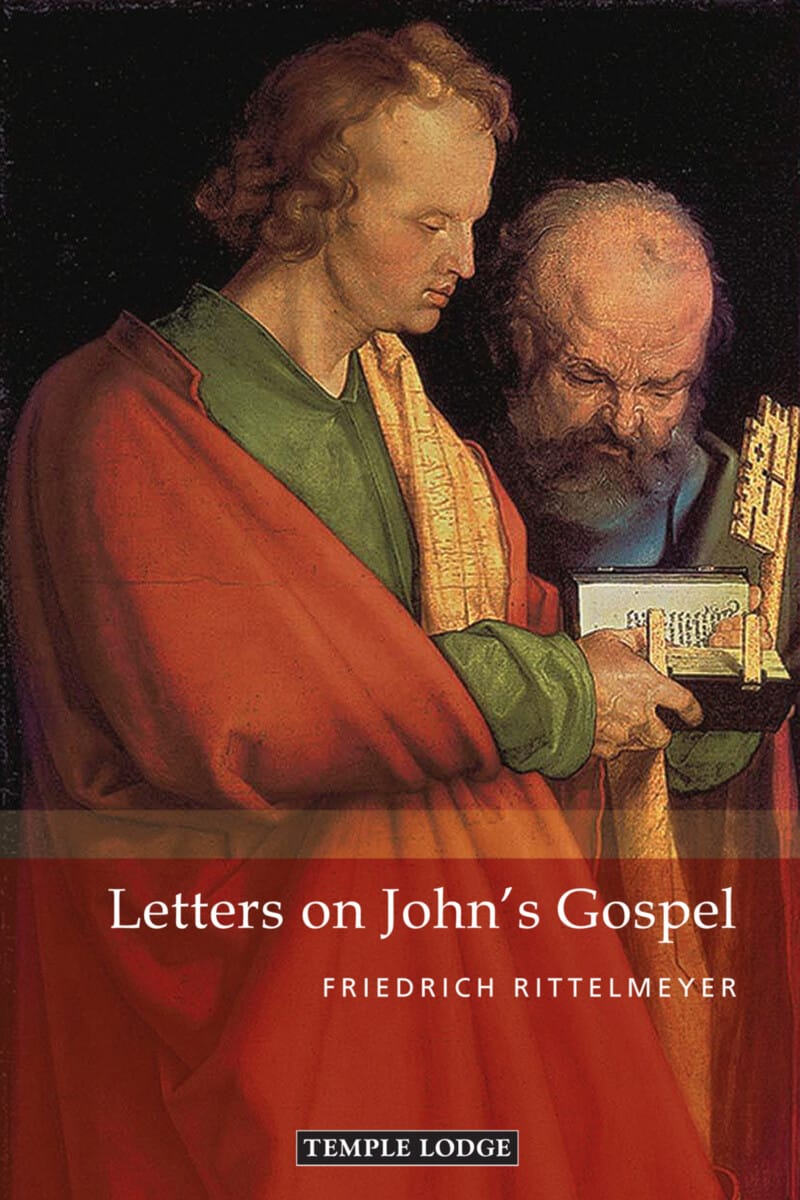Letters on John’s Gospel
“These Letters . . . aim to make John’s Gospel accessible to people today as their own Gospel, both as a whole and in the details; to illuminate it with the spiritual knowledge of the age and to make it fruitful for life, not only for meditation but also for practical ordering of destiny.” — Friedrich Rittelmeyer
Revitalized Johannine Christianity stands at the heart of the work of Christian renewal as inspired by Rudolf Steiner during the early twentieth century. Friedrich Rittelmeyer, a Lutheran minister and theologian who helped found The Christian Community in 1922, was a leading figure in this new Johannine movement. He described John’s Gospel as encapsulating “an indescribable glory of revelation of love. This glory has such purity, delicacy, and spiritual power that in it one has the material with which a marvelous new world may be built.”
One of Rittelmeyer’s most powerful works, Letters on John’s Gospel first appeared in a series of publications by the Stuttgart seminary of The Christian Community between 1930 and 1932. Although the Letters were written with students and local congregations in mind, they provide manifold insights for anyone seeking a glimpse of the majesty of John’s Gospel.
Margaret Mitchell’s translation from 1937 had never been published as a book. Revised here and expanded by the editors, Alan Stott and Neil Franklin, this volume features additional contributions by Rudolf Frieling and Emil Bock.
This volume is a translation from German of Briefe uber das Johannes-Evangelium (Verlag Urachhaus, Stuttgart, 1938).
C O N T E N T S:
Editor’s Preface by Alan Stott
Introduction: “Friedrich Rittelmeyer and John’s Gospel,” by Rudolf Frieling
The “I-AM” as the midpoint of Human History
Christianity as a Mystery Religion
The Nascent World
John’s Gospel, Chapter One (Revised Standard Version)
LETTERS ON JOHN’S GOSPEL
1: The Mystery of the “I” (1)
2: The Mystery of the “I” (2)
3: Son of God and Son of Man (1)
4: Son of God and Son of Man (2)
5: Son of God and Son of Man (3)
6: The Book of Joy
7: “I am the Light of the World”
8: “I am the Life”
9: “I am Love”
10: A World-historical Conversation
11: The Springtime of the Disciples
12: The Great Intercession: The High-priestly Prayer (1)
13: The Great Intercession: The High-priestly Prayer (2)
14: The Great Intercession: The High-priestly Prayer (3)
Consecration of the Disciples (John 21)
John’s Gospel, Chapter 17 (Revised Standard Version)
Appendix: “The Word from Inner Listening Twenty Years after the Death of Friedrich Rittelmeyer,” by Emil Bock
Further Reading
About the Author
Friedrich Rittelmeyer (1872–1938) was a Lutheran German minister, theologian, and the principal founder and first leader of The Christian Community. He came to prominence in the early 20th century as a leading academic liberal theologian and priest in Germany and wrote several books that advocated for a socially engaged “Christianity of deeds” (Tatchristentum). During World War I, he became one of the most high-profile clergy in Germany to publicly oppose the war. From the 1910s, his thinking was gradually influenced by Rudolf Steiner, and in 1922 a group of mainly Lutheran priests and theology students led by Rittelmeyer founded The Christian Community as an ecumenically oriented Christian community inspired by Steiner’s writings. The Christian Community is primarily a liturgical community with a loose creed that rejects Christian dogmas. Rittelmeyer saw it as a continuation of the liberal Christian tradition of which he was the foremost representative in Germany in the early 20th century.












Reviews
There are no reviews yet